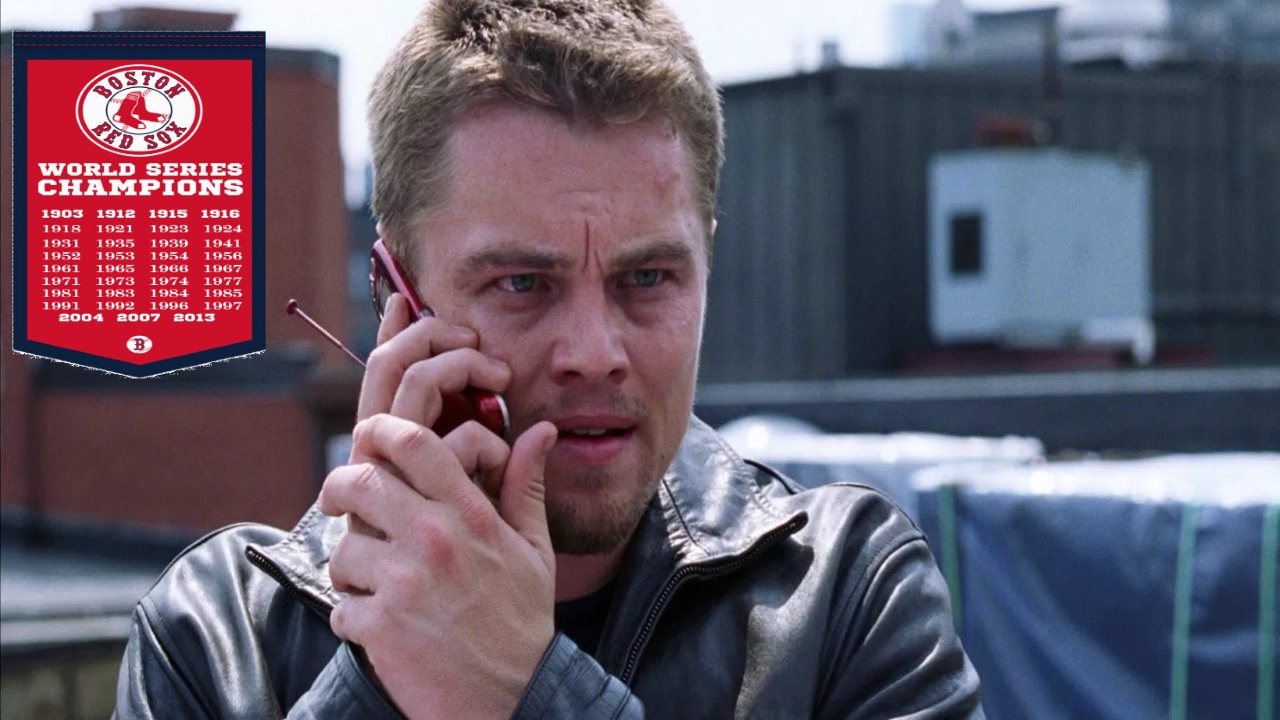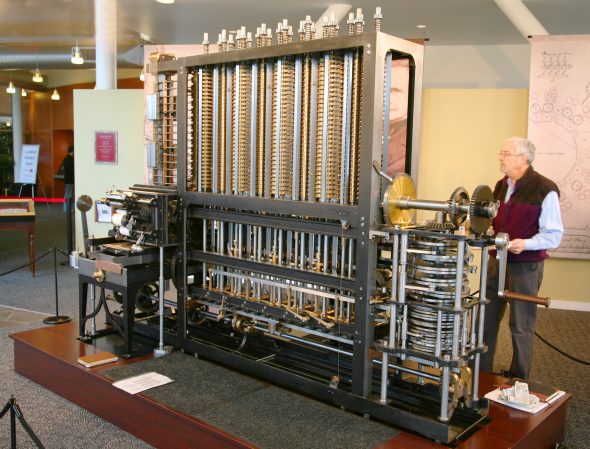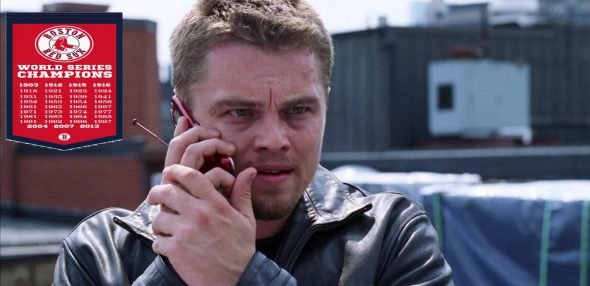Editor: In Part 1 of our discussion, we asked “Why Are Alternate Histories So Negative? This week, we’re back to think both bigger and smaller about alternate history.
Adams: I think there’s a (perceived) element of blasphemy in imagining a world that is better than our own. And I mean that in two senses.
First, there’s the literal “blaspheme against God” sense of the word. One of the most famous arguments for the existence of a Divine Power is Leibniz’s the “Best of All Possible Worlds” argument: “If God is all powerful and all knowing, then we must be living in the best of all possible worlds, because if the world could be better, God would have made it that way.”
And if you take this seriously, imagining a different *better* world implies that God goofed up – which, God being, God, is impossible.
But second, there’s the more secular blaspheme against some vague idea of “our ancestors.” You’ll see this argument pop up among a lot of defenders of the Confederacy: “You can’t call people who owned slaves monsters! Those were my ancestors. And how dare you insult my ancestors!” Positing a better-world-alternate-history can be seen as a smear on our forebears: they screwed up, and here’s how great things would be if they hadn’t been so evil.
Stokes: I think the blaspheme against God part of it is actually interesting. Not every writer is a theist, of course, and even if they are, I think relatively few people are passionately committed to the best possible world argument.
But there is a sense… in which, to write a utopian alternate history, you need to be a true believer in something or other. Like say you want to write a story where the communist revolution never devolves into Stalinism, and everything works out pretty much the way that Marx predicted it would.
That would be utopian alternate history, at least for some people. But you have to be a committed Marxist to imagine something like that at length and in detail, and to bother writing it down.
Like, either you buy the ideology so wholeheartedly that you are basically preaching it as gospel, or you’re going to write a book where the worker’s paradise turns out to be a hellhole — in which case you’re not writing utopian alternate history in the first place. Even if the world you imagine is about as good and bad as the current world, that’s not utopian.
(One example of the latter, actually, is the William Gibson/Bruce Sterling novel The Difference Engine which is basically a book length treatment of “What if Charles Babbage had invented a steam-driven microprocessor?” It got off some good passages, but in the end devolved into an episode of The Flintstones. What would a stone age fax machine look like? Some kind of crazy bird. What would a steampunk fax machine look like? Some kind of crazy clockwork thingamajig: who cares.
Adams: I think what you are saying is mostly right, but let me ask this clarifying question: are you arguing that “better-world” alternate history fiction is *necessarily* utopian? Or are you just saying that only a “true believer” would *take the time to write* a better-world alternate history?
For what it’s worth, the only example of better-world fiction that jumps to mind is a novella I read once about a quasi-pacifistic bombardier who unilaterally decides to cause the atomic bomb to miss Hiroshima. This show of force still ultimately intimidates the Japanese into surrender, saving the thousands of lives killed in Hiroshima and Nagasaki. And that story definitely has the sort of true-believer vibe you describe. It’s not that there *aren’t* arguments against dropping the bomb, but the story doesn’t really engage with the arguments for/against dropping the bomb. It’s mostly just a “wouldn’t it be great if it turned out I was right” story.
Stokes: I guess I’m imagining different levels of utopia? So that even if all that was changed is that sunscreen smelled a little better, that would still be — mildly — utopian? The conviction I’m imagining in the writer is not even so much faith that everything would be perfect, as it is faith that this is exactly how it would turn out.
This is where it starts to feel a little bit like blasphemy. Because how do you know? Who are you, you novelist, to say that if Franz Ferdinand was really really good at ducking, WWI would never have happened and the antebellum status quo would have continued forever? The nightmare scenarios don’t strike me as predictions in the same way. They’re just explorations of awfulness. They’re horror films.
Wrather: I wonder if we aren’t somehow thinking too big. Slavery, colonization, mass murder of the natives—these are the original sins of the Americas and it’s understandable to be attracted to them for compelling stories, but removing them involves reimagining so many things. Without thinking about it too hard, for example, you’d have to account for: a different set of economic forces in the world that didn’t create the slave trade; the effect on America’s economy, which wouldn’t be anywhere near what it is today; the political knock-on effects (would there even have been an American Revolution?); and so on.
Pete was joking about “The Departed, but the Red Sox Won 35 World Series”, but I wonder if that isn’t the scale we should be looking at.
Most of the recent examples I can think of have to do with technology: What if smartphones or social networks were different in some very specific way? What if the automobile had never been invented? These are unsubtle examples, but they’re at least at the scale I’m proposing would be right.
Fenzel: Maybe a buddy road movie about two possible Republican and Democrat White House staffers who drive back to California together after Ross Perot wins the 1992 presidential election.
Wrather: Oh, that’s good. And it’s about their reactions to a the businessman with an outsized personality and no political experience who has just won and about how Nothing Will Ever Be The Same In America Again?
Richard Rosenbaum: I’ve been dreaming of a world where John McCain won the Republican nomination in 2000. I’ve been dreaming of that world for the last seventeen years and will probably never stop.
Adams: So let’s take this “think smaller” premise to its limit: a totally straight-faced Friends-clone sitcom (i.e. 6 attractive friends hang out in NY and fall in love with each other), but they are constantly dropping references to things that are just a *little* bit different than what happened in real life. So they make a “Imma let you finish” joke, but it’s about Jay-Z interrupting Katy Perry at the Tonys. Michael Dukakis lost the ‘88 election because he looked silly in an airplane instead of a tank. etc.
Basically the goal is to just gaslight the audience into thinking that THEY have mis-remembered the event in question, not the show. Obviously Sinbad’s genie-movie “Shazam” would feature prominently and frequently in the plot.
Stokes: An alternate history where people typically use ketchup in the places they’d use mustard and vice versa
Wrather: Yo dawg ketchup on a pretzel is just wrong
Stokes: Matt, matt. Lemme blow your mind. In this twisted mirror universe, mustard on a pretzel is just wrong.
Amanda Jorda: Mustard on a pretzel is weird. I don’t know man, pretzels are exclusively a butter thing for me…
Richard Rosenbaum: This is a hell of a Think Tank, I gotta say.



I’m so glad you are going on about this topic!
Since your last post I’ve thinking of Stephan’s Baxter’s Voyage (I’ll leave it to you to put in the affiliate link of your choosing). Here, the fist crewed voyage to Mars in the 1980’s via re-purposed Space Shuttle.
This happy timeline is contingent on JFK surviving the 1963 assassination attempt, , although not without consequence. A trade-off is that the robot probe program so successful in our own reality falls by the wayside, so there goes all our awesome knowledge about the outer planets and their many, many moons. This loss makes me think of the merits of crewed verses robotic space travel. How would the spin-off technology effect life on Earth? Would the differences for the average person be all that significant?
The Martian (we’ve discussed the film version on this site) is another possible alternate now where crewed space travel is made a priority.
Have you guys seen the show Sliders? It’s mostly terrible and full of 90’s sci-fi camp, but now and then the writers did at least come up with some interesting “What if?” questions, not all of which were particularly dystopian or utopian, and in many cases the worlds were just sort of backdrops to whatever other story they were telling.
One of the more interesting ones that I can recall is “What if Texas had won and maintained Independence?”. In the show, it meant that the entire west coast was part of the Republic of Texas rather than the USA (plausible), everyone there preferred bolo ties to regular ties (also plausible), and people still had old west style gunfights (… less plausible). But it was still an interesting setting.
Other smaller scale worlds they landed on were things like “What if Elvis never died?” and “What if the hippy free love movement of the 60’s never ended?” and “What if most of the world’s oil was located under California?” and “What if nuclear weapons were never invented and thought to be impossible, but there’s an asteroid headed for Earth and we kind of need them?”
Like I said, on the whole it was a terrible show. But on the other hand, some of the ideas really showed the potential of what alternate history stories *could* be.
On the other end of the spectrum is Kim Stanley Robinson’s “The Years of Rice and Salt” which was an alternate history based on “What if the black plague wiped out 99% of Europe’s population?”. It was a huge change but a thorough and detailed imagining of how history would have played out differently absent Europeans (with Asia dominating). Again neither utopian nor dystopian.
Personally those are the sorts of alternative stories I’m most interested in. Ones that just *are*. Stories that go “things would be so much better/worse if so-and-so had/hadn’t happened” are kind of preachy. But stories that just offer a different backdrop and social context and explore how people might think and behave and make decisions in that context are *very* interesting. Those are the ones that I’d like to read more of, and there seem to be very few of them.
On the topic of “small” alternate universes, I’d think creators would run in the problem of allowing the audience to differentiate between research errors and actual alternate reality stuff. Any alternate reality universe that is extraordinarily similar to our own would have to be explicitly established as alt. metatextually (as opposed to something like Confederate, where the creators could presumably just show a shot of the Confederate flag over the White House or something and everyone in the audience knows exactly what that means.)
That said, there are a few shows that take place in “our” universe while allowing travel to a similar-but-not-exact alternate universe. Fringe comes to mind – which is interesting, as the show never actually showed what the point of divergence between the universes was. Another example would be Rick and Morty – a fan theory exists that the series actually follows multiple sets of Ricks and Mortys (Morties?) across multiple very similar universes from episode to episode, and you have to pay attention to minute details to track which universe a given episode takes place in – but the theory hasn’t been confirmed by the creators. Either way, it seems like the “small change alt history” trope seems to be done in cases of travel between universes where the audience can be rewarded by obsessing over minor details.
I loved Fringe. I thought it handled the 9/11 variances in a non-sensational way. 9/11 happened, but it happened differently. We knew this from the existence of the Twin Towers and a headline reading “Obamas move into new White House, “ indicating that the White House was destroyed.
My main problem with Fringe, Sliders and even the Mirror Universe Star Trek episodes is how almost everybody has a mirror universe double. This is statically impossible. Once the parallel universe diverges from our own, everybody’s parents are not going to get together at the same time, the exact egg will not meet the exact sperm. As time goes on, fewer and fewer people will have a double.
I still want to go to the universe where the other candidate won the 2016 US Election.
I can not for the life of me remember what it was or find it on the internet, but at some point I read a sci-fi book of some where the casting of the Star Wars prequels was different (Ewen McGregor didn’t play Obi-Wan, for instance). It wasn’t an important plot point or anything like that, but it’s just casually dropped in a couple portions of the books. I think it might be the alternate-history “Axis of Time” trilogy, but I am not 100% sure.
Charles Stross’s Merchant Princes series explores a couple of alternate histories in an interesting way.
First, it presents a Sliders-style multiple earths comparison. And mostly it’s interested with how this people who could travel between them can use the differences of technological development and culture to their advantage. (For example, they send messages quickly through a ‘modern’ earth like our own, but move drugs through a renaissance-style world where they aren’t illegal or valuable).
Interestingly, two of the technological backwards histories have vastly different “triggers” for their alternative histories.
In one it seems, though it’s never entirely explained, that Judaism, and therefore Christianity and Islam, never developed. This leads somehow to Europe’s technology and culture staying stuck in the late Middle Ages. The eastern seaboard of the US is colonized by a Germanic/Norse culture that builds some castles and towns, but has no reason to colonize the rest of the continent.
The other alternate earth is stuck in the industrial revolution, the US never became independent and has actually the seat for the British empire in exile for about a hundred years. This history, though, is directly traced to the success of one of the Jacobite rebellions and the subsequent invasion of Britain by France.
Finally, through references to a Chief Justice Bork, it’s also obvious that even the technologically modern earth isn’t the same we live in.
All that being said, none of these alt histories are dystopian or utopian. This is mostly because the author is interested in building conflicts and plots out of leveraging differences in technological development, rather than try to make any kind of judgment on past events and their consequences.
I consider this series to be one of the more effectively executed alt-histories. And I think it’s because it does it backwards from the Confederate type alt histories. Rather than take a piece of history and change its outcome and let it play out, it comes up with a world it wants to explore and figures out how it might have come about.
I remember Sliders! At least the first few seasons. I recall one episode where the critical point was that antibiotics were never discovered, so bacterial epidemics would fairly regularly devastate society. Other than a radically different approach to public health, things were pretty much the same.
I suppose that the reason there’s not much in the way of Utopian alternate history is that no one wants to be reminded of how awful reality is in comparison.
“For of all sad words of tongue or pen,
The saddest are these: ‘It might have been!'”
– John Greenleaf Whittier, “Maud Muller”
I’ve never seen the television adaptation of “Man in the High Castle” but I have read the book and the title of the book is a reference to character in the book who wrote an alternate history novel in which the Allie won the war. I got a kick out this plot because the work of fiction in this work of fiction was close to reality, but not quite.
Man in the High Castle goes down a different path than real life because FDR was not assassinated, but in the books fiction FDR is still only elected president twice. The author could not imagine a world in which FDR could be elected four times, because that was kind of a weird concept since it had never happened before or since.
I think this was Phillip K. Dick’s way of commenting on how its really hard to predict alternatives because a lot what has happen in our world is strange by itself.
Just some random brain droppings on this subject:
Political shows are almost always alternate histories in that they show presidents and world leaders different from our own. “West Wing” is arguably a better-than-now alternate history where a moderate Democrat is president rather than George W. Bush. In that universe the 9/11 attacks never happened and we didn’t start a decade plus military engagement in the Middle East.
It’s a bit more of stretch to argue the same thing about “Veep”. But a brief Selina Meyer presidency strikes me as a vast improvement of the current incumbent. If anything the venal incompetence of the Veepiverse is being vastly outpaced by reality.
See also; Designated Survivor, which starts with POTUS and Congress getting blown up, but then becomes weirdly idealistic and naive.
House of Cards started off cynical and now seems quaint.
I know the Overthinking Mods are huge 24 fans. I always considered that show a very coherent AU, where things are the same, right down to the cars and phones, but slightly different. 9/11 is implied but never referenced directly. And the US gets its’s first black President around 2000.
The television series “Flash” has a lot of fun with their DC multiverse alternate Earths. Earth-2 is much more 1950s whiz-bangy than our Earth even if it had a darker timeline. As various Harrison Wellses come and go, one of the recurring gags is how his Earths vary in large and small ways from ours with a lot of jokes centering around alternate pop culture. This is carried on to the spin-off “Legends of Tomorrow” which has dealt with timeline altering events such as “What if George Lucas never made Star Wars?” That strikes me as infinitely more dystopian than any hypothetical victory by Nazi Germany.
Adams: “The Lucky Strike” gets followed up in three different ways by Robinson in his essay “A Sensitive Dependence on Initial Conditions,” which itself is a protected reflection on the merits and means of alternate history. “The Lucky Strike” ends with WWII wrapping up, but “Conditions” asks how that plays out in the long-term.
You can read it here: http://www.baen.com/Chapters/1597801844/1597801844___6.htm
In short, there’s three long-term scenarios that range from “Utopia” to “Our History, slightly remixed” to “WWIII in the 1950s.”
More generally, I think ‘negative’ alternate history is generally more popular because you need to have a passing familiarity with actual history to understand what’s going on. That’ll be the Civil War and WWII for the general public. More niche alt-history focuses on smaller divergences, because it assumes its audience will be more familiar with the background material. Sea Lion Press does a lot of that.
Like, “What if George II stumbled during his coronation?” leads to the story of ‘Look to the West’. As the story there is long and involved, you’ll have to pardon a TV Tropes link for a decent summary:
http://tvtropes.org/pmwiki/pmwiki.php/Literature/LookToTheWest